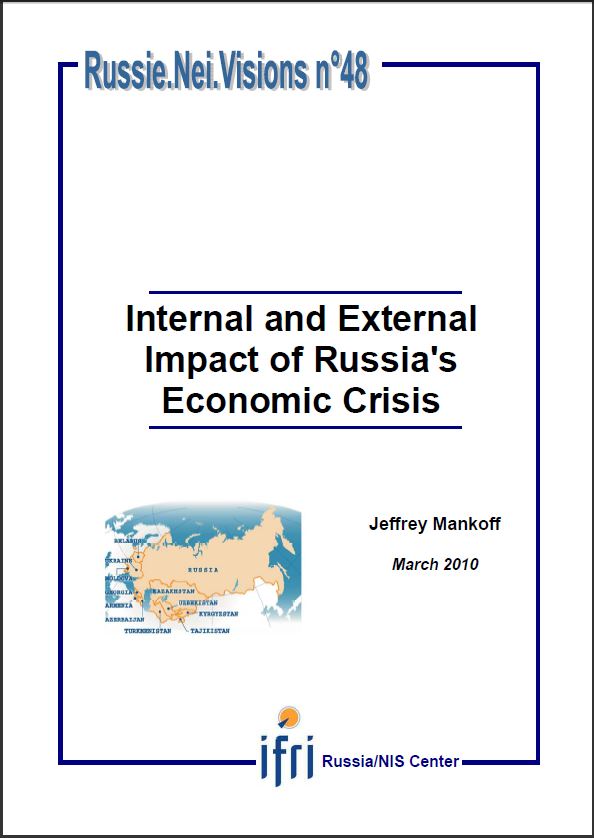Internal and External Impact of Russia's Economic Crisis

Even though Russia's economy has returned to growth-on the back of higher oil prices-the financial crisis of 2008-09 will continue to reverberate across Russian politics and foreign policy. Domestically, the crisis has called into question the "social bargain" of the Putin years. It has also complicated President Dmitry Medvedev's push for economic liberalization and modernization.
By restricting opportunities for rent-seeking among the various politically connected oligarchic factions, the crisis has exposed fissures within the elite. In terms of foreign policy, the crisis has limited the effectiveness of Russia's principal sources of leverage: energy resources, the military and foreign investment. If the worst is indeed over, much of the momentum for further reform is likely to dissipate, leaving Russia facing a recovery that is slower and less complete than that of other large industrial states (such as China and India). If there is to be a silver lining for Russia in the crisis, Moscow needs to push through the reforms needed to make Russia more attractive to foreign investors.
Download the full analysis
This page contains only a summary of our work. If you would like to have access to all the information from our research on the subject, you can download the full version in PDF format.
Internal and External Impact of Russia's Economic Crisis
Related centers and programs
Discover our other research centers and programsFind out more
Discover all our analysesRussia, the Palestinians and Gaza: Adjustments after October 7th
The Soviet Union (USSR), and subsequently the Russian Federation as its internationally recognized legal successor, has consistently sought to play a visible role in efforts to resolve the Israeli-Palestinian conflict.
Deathonomics: The Social, Political, and Economic Costs of War in Russia
The report attempts to outline and examine a truly new phenomenon in Russian society, dubbed “deathonomics”—the making of a mercenary army against the backdrop of the Kremlin’s war in Ukraine, eventually replacing both the Soviet (conscript) and early new Russian (contract) armies. It notes that, by the end of 2023, this trend had turned the military service into one of the highest-paying professions in the country, something not seen in Russia on such a scale since the late 17th century.
Russia's Asia Strategy: Bolstering the Eagle's Eastern Wing
Among Russia’s strategic priorities, Asia traditionally played a secondary role compared to the West. In the mid-1990s, then Foreign Minister Yevgeny Primakov initiated a rapprochement with China and India. Then, in 2014, deteriorating relations between Russia and the West prompted Moscow to begin its “great pivot to the East”.
Kazakhstan After the Double Shock of 2022: Political, Economic and Military Consequences
The year 2022 represented a dual shock for Kazakhstan. In January, the country faced its most severe political crisis since independence, followed in February by Russia’s full-scale invasion of Ukraine, which cast uncertainty over the borders of post-Soviet states. These consecutive crises profoundly shaped Kazakhstan’s domestic and foreign policy.











